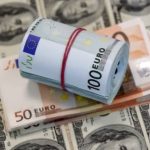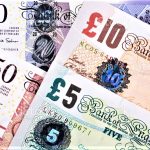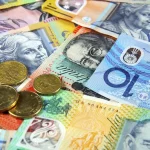Oct 22, 2022
VOT Research Desk
Market Insights, Considerations & Analytics
The S&P 500, Nasdaq, and Dow all experienced their largest percentage advances since June, according to Treasury Secretary Yellen.
Yen recovery raises the possibility of BoJ involvement
Fed’s Daly thinks it’s time to think about reducing rate increases.
Following indications that the Federal Reserve may consider less aggressive inflation-control measures after November, Wall Street closed sharply higher and benchmark Treasury yields paused.
After a week marked by mixed earnings, weak economic data, and political turmoil in Britain, the three major U.S. stock markets ended the week with gains of more than 2% and their largest percentage gains from Friday to Friday since June.
After U.S. Treasury Secretary Janet Yellen stated that inflation is not ingrained in the economy and San Francisco Federal Reserve President Mary Daly stated that it is time for the Fed to consider reducing the rate at which it raises interest rates, the rally gained momentum.
Equity markets turned around despite a weak start to the day and continue to exhibit intraday volatility. David Carter, managing director at JPMorgan Private Bank in New York, stated, “People are tired of selling.”It’s time to switch gears and keep in mind that equities will gain from interest rates falling as quickly as they have increased.
The Nasdaq Composite gained 244.87 points, or 2.31 percent, to 10,859.72, the S&P 500 gained 86.97 points, or 2.37 percent, and the Dow Jones Industrial Average gained 748.97 points, or 2.47 percent, to 31,082.56.
Analysts speculated that Tokyo had intervened to halt the fall of the Japanese yen as the greenback fell against the yen.
Despite official statements to the contrary, trading data suggests the Bank of Japan intervened to bid up the yen, showing that the foreign exchange markets are still incredibly unpredictable and unclear.
Even yet, the dollar declined in value relative to a basket of other currencies as the euro gained momentum.
The euro gained 0.77 percent to $0.9858, while the dollar index dropped 0.9%.
Sterling was last seen trading at $1.1304, up 0.63 percent on the day, as the Japanese yen rose 1.94 percent against the United States dollar to reach 147.30 per dollar.
As investors worried about inflation and the economic effects of central banks’ efforts to control it, as well as the possibility of a recession, European shares fell.
While MSCI’s global stock index gained 1.52%, the pan-European STOXX 600 index lost 0.62 percent.
Stocks in emerging markets rose 0.29 percent. While Japan’s Nikkei lost 0.43 percent, MSCI’s broadest index of Asia-Pacific shares outside of Japan ended 0.23 percent lower.
On the news that the Federal Reserve might discuss reducing the size of interest rate hikes in December, 10-year U.S. Treasury yields eased after reaching their highest level since 2007.
The price of benchmark 10-year notes increased by 2/32 to 4.2209 percent, up from 4.226% late on Thursday.
The 30-year bond’s price dropped 56/32 to 4.3369 percent, down from 4.215 percent late on Thursday.
Oil prices rose as concerns about a global economic slowdown were outweighed by hopes of increased demand from China.
Brent settled at $93.50 per barrel, up 1.21 percent on the day, while U.S. crude gained 0.64 percent to $85.05 per barrel.
The weaker dollar prompted a rebound in gold prices.
To $1,654.16 an ounce, spot gold gained 1.6%.









